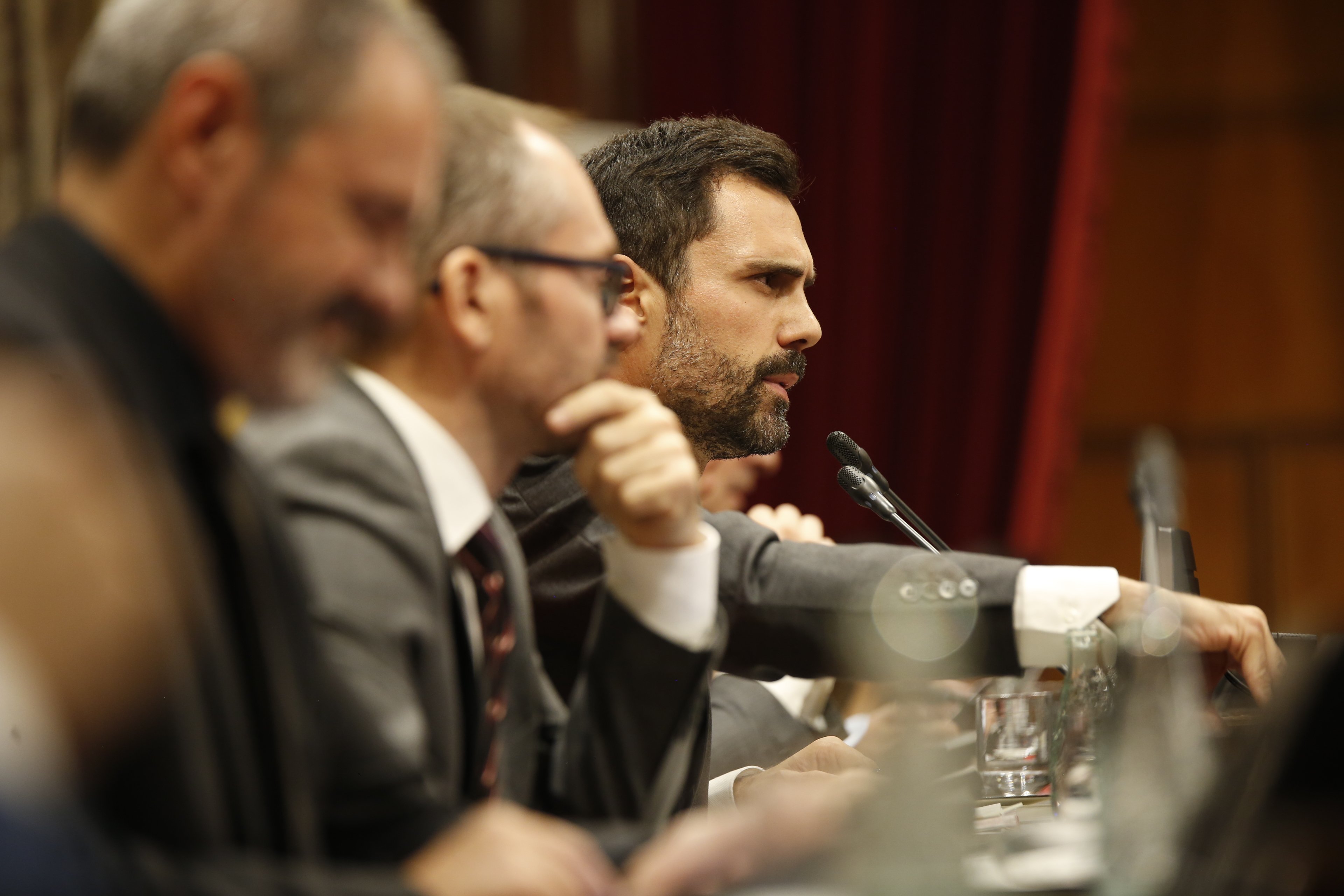Spanish public prosecutors are demanding that the Supreme Court annul the verdict of acquittal against four members of the Catalan Parliament's Bureau chaired by speaker of the house Roger Torrent. All four, Torrent, Eusebi Campdepadrós, Josep Costa and Adriana Delgado were acquitted by the Catalan High Court (TSJC) of disobedience, but the prosecutors believe the trial must be repeated with new judges, in the Supreme Court. The TSJC acquitted the Catalan MPs after concluding that they did not have the intention of disobeying the requirements of the Constitutional Court when in 2019, they accepted two resolutions for the house to consider, on Catalan self-determination and the Spanish monarchy. By contrast, the prosecutors says that the verdict was "arbitrary" and "far removed by reality" and not solidly founded, according to the appeal which the ACN agency has reported and ElNacional.cat has now had access.
Prosecutors believe that acquittal was "beyond all logic"
In his appeal to the Supreme Court, the prosecutor Antonio Pablo Rives alleges that the acquittal by the court was "absolutely arbitrary" and used "non-rational criteria of evaluation, beyond all logic and far from any parameter of interpretation sustainable in law". He adds that the verdict was "far from the maxims of experience and separated from the constitutional canon of rational evaluation of the evidence". Thus, the prosecutor is in agreement with the minority opinion of the TSJC ruling on the case and says that the other two magistrates (who formed the majority of the three-member court) made a decision that was "absolutely unfounded and far from reality". In order to justify his appeal, Rives uses the arguments that the Constitutional Court itself put forward in January 2020, alleging that the Catalan Parliament had "again violated the constitutional and statutory order" by admitting to procedure proposed resolutions with content "objectively contrary to the Constitution and it was not difficult to verify", taking into account previous judgments of the court and the requirements sent to the Bureau, whose task is to decide which matters will proceed to Parliament for hearing. Because of all of this, the prosecution not only asks for the verdict to be annulled and the court to issue it again in order to better argue it, but also to repeat the trial with different judges. The private prosecution conducted by Vox in the trial had also announced that it would present an appeal, but in the end did not formalize it.
Josep Costa denounces the lack of impartiality of judge Barrientos
Meanwhile, in a separate initiative, one of the defendants in this case, former deputy speaker Josep Costa, asked in writing for Spain's General Council of the Judiciary (CGPJ) to open a disciplinary file against the president of the High Court of Catalonia, Jesús Maria Barrientos, and a second judge in the same court, Carlos Ramos, for the circumstances of the disobedience trial against the parliamentary Bureau chaired by Roger Torrent. According to Costa, despite being challenged, the president of the judicial body continued to take part in the procedure, a fact that he considers a "serious fault", and accuses the judge of choosing whoever he wanted as a substitute while skipping the rules. In the case of Ramos, the former deputy speaker maintains that, along with Barrientos, he "openly resisted" the decision made by the appeals chamber, a position he sees as "manifest disregard", after that chamber had determined that there there was a "lack of impartiality to judge".

